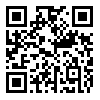Volume 3, Issue 4 (Fall 2023)
J Clin Sport Neuropsychol 2023, 3(4): 0-0 |
Back to browse issues page
Download citation:
BibTeX | RIS | EndNote | Medlars | ProCite | Reference Manager | RefWorks
Send citation to:



BibTeX | RIS | EndNote | Medlars | ProCite | Reference Manager | RefWorks
Send citation to:
Salman Mahini M, Kordi M, Rostami R. The effect of Neurofeedback Training on the athletic performance of chess national team. J Clin Sport Neuropsychol 2023; 3 (4) : 1
URL: http://jcsnp.ir/article-1-107-en.html
URL: http://jcsnp.ir/article-1-107-en.html
1- Ph.D. Students in Sports Management, Shahid Beheshti University, Tehran, Iran.
2- Professor, Sports Activity Physiology Department, Faculty of Sports Sciences and Health, University of Tehran, Tehran, Iran.
3- Professor, Department of Psychology, Faculty of Psychology and Education, University of Tehran, Tehran, Iran.
2- Professor, Sports Activity Physiology Department, Faculty of Sports Sciences and Health, University of Tehran, Tehran, Iran.
3- Professor, Department of Psychology, Faculty of Psychology and Education, University of Tehran, Tehran, Iran.
Abstract: (1529 Views)
Background and Purpose: For elite athletes, maintaining focus during critical moments can mean the difference between achieving success or falling short. With increasing competition and various endeavors, conventional training and exercises alone may not suffice to propel athletes to their peak performance; creating new opportunities for experiencing peak performance appears necessary. The aim of this study was to determine the effectiveness of neurofeedback training (NFT) on the performance of elite chess players.
Method: This study employed a quasi-experimental design. The participants comprised 24 invited national team chess players who volunteered for the study. Participants were randomly assigned to either the experimental or control group. They completed the Sport Competitive Anxiety Test (Martens, 1977) and Vienna Test System (Kaiser et al., 2016) in pre-test and post-test sessions. Additionally, their heart rate variability in resting state and performance were assessed based on the latest FIDE rating. The experimental group, in addition to the preparatory exercises in the national team and clubs, received 12 sessions of NFT (3 sessions per week), while the control group continued their regular team or club practices during this period. Data were analyzed using multivariate analysis of covariance in SPSS version 15.
Findings: The results of the multivariate analysis of covariance showed significant changes in anxiety, attention, and heart rate variability in the experimental group compared to the control group. However, there was no significant difference in the performance of the experimental group compared to the control group.
Conclusion: Based on the results of this study, NFT can be recommended for improving neuropsychological performance, personal control, and self-regulation.
Method: This study employed a quasi-experimental design. The participants comprised 24 invited national team chess players who volunteered for the study. Participants were randomly assigned to either the experimental or control group. They completed the Sport Competitive Anxiety Test (Martens, 1977) and Vienna Test System (Kaiser et al., 2016) in pre-test and post-test sessions. Additionally, their heart rate variability in resting state and performance were assessed based on the latest FIDE rating. The experimental group, in addition to the preparatory exercises in the national team and clubs, received 12 sessions of NFT (3 sessions per week), while the control group continued their regular team or club practices during this period. Data were analyzed using multivariate analysis of covariance in SPSS version 15.
Findings: The results of the multivariate analysis of covariance showed significant changes in anxiety, attention, and heart rate variability in the experimental group compared to the control group. However, there was no significant difference in the performance of the experimental group compared to the control group.
Conclusion: Based on the results of this study, NFT can be recommended for improving neuropsychological performance, personal control, and self-regulation.
Article number: 1
Type of Study: Applicable |
Subject:
Clinical Sport Neurpsychology
Received: 2023/09/10 | Accepted: 2023/09/24 | Published: 2023/11/1
Received: 2023/09/10 | Accepted: 2023/09/24 | Published: 2023/11/1
| Rights and permissions | |
 |
This work is licensed under a Creative Commons Attribution-NonCommercial 4.0 International License. |





